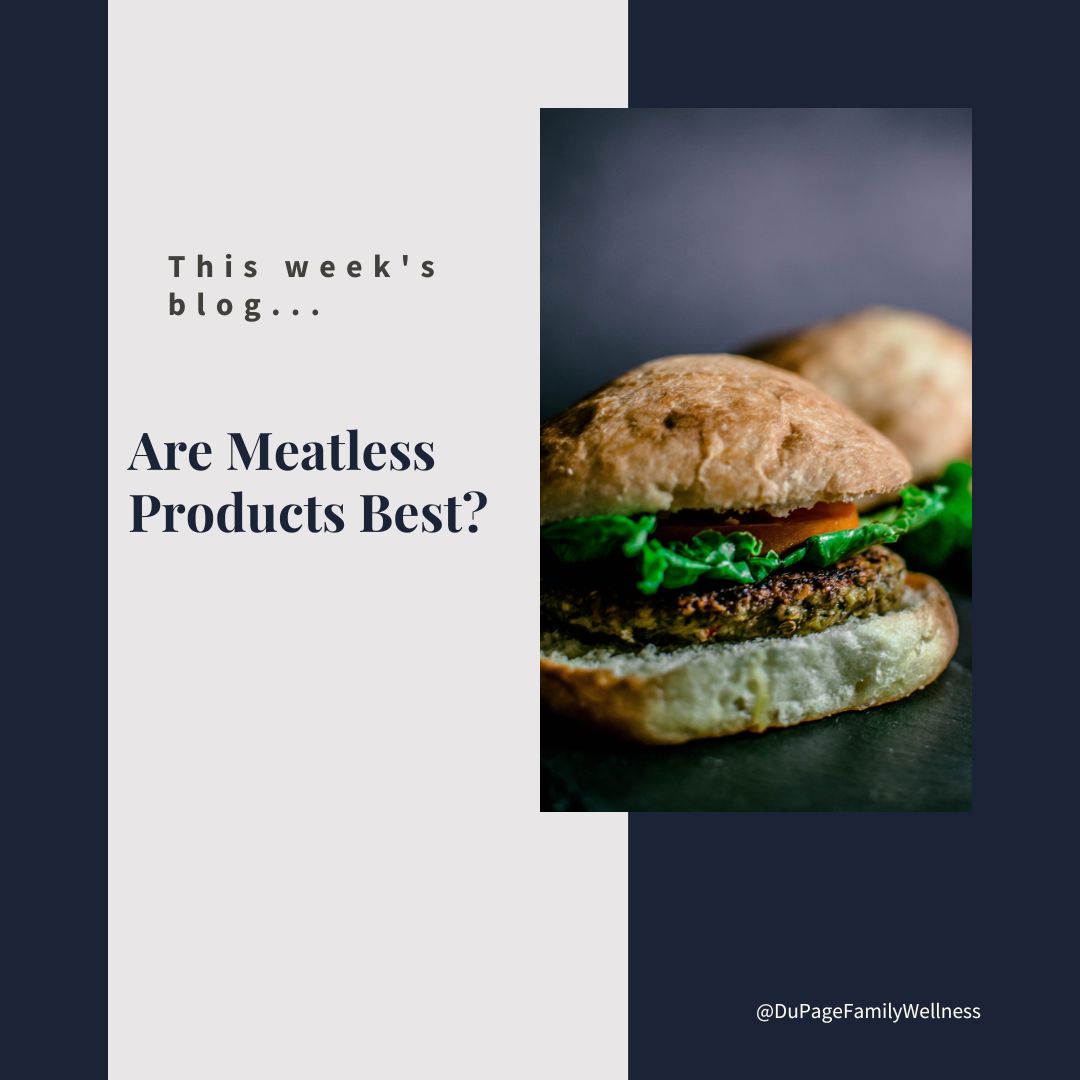 Summer is a great time to grill out. It lets you enjoy the warm weather, keeps your kitchen cool, and makes clean-up easier. It is a fun and delicious way to quickly put dinner on the table, especially if you marinate your meat the day before.
Summer is a great time to grill out. It lets you enjoy the warm weather, keeps your kitchen cool, and makes clean-up easier. It is a fun and delicious way to quickly put dinner on the table, especially if you marinate your meat the day before.
My favorite things to make are chicken thighs, sliders, eggplant, carrots, and zucchini. But, are those things the healthiest choices or should we choose meatless options? My answer might surprise you.
If you have moral reservations about eating animal products feel free to jump down to the “plant-based” sections at the end of the blog. I will be focusing on evaluating these products from a physical health perspective.
Let’s evaluate meatless products, so you can make informed choices about what you put in your body.
The Basics
Let’s first define what we mean by a vegetarian or vegan diet. Most people know that being vegetarian means that you don’t eat meat, while vegans don’t eat any animal products at all (no honey, eggs, milk, cheese, etc.).
It is important to note that not all vegetarian or vegan food is healthy. Just think about soft drinks, Oreos, potato chips, and candy. Many of them are free from animal products, but would not be considered healthy.
Meat Alternatives
Since vegan and vegetarian diets exclude meat, there is a big market for alternatives that mimic traditional diets. The plant-based foods became a $3.3 billion industry in 2018. You can find chicken strips, hamburgers, bacon, and sausage alternatives in stores today.
Unfortunately, these products contain questionable ingredients. According to Sarah Keough (LDN), “Today’s popular plant-based meats barely support the word ‘plant.’ They are instead composed of protein isolates, synthesized nutrients, processed oils, and a host of other additives connected with various health issues.”
Marketing can make unhealthy food look healthy, check out the Making Anything a Health Food blog post. So, read the ingredient label to see for yourself what you are putting in your body.
Questionable Ingredients
Canola or sunflower seed oils are often used in meat alternatives. They are high in omega-6 fatty acids which cause inflammation in the body. Inflammation is a huge factor in most diseases, so we must question the wisdom of consuming these products.
Another ingredient that may cause harm is the GMO Soy Leghemoglobin. It is what gives meat alternatives the meaty flavor and appearance. It is found in small amounts in nature, so it needs to be manufactured in a lab. It is fairly new for humans to consume it in any significant amount.
It is always better to eat foods that are made in nature rather than products produced in a lab; the healthiest foods consist of simple real food ingredients.
Safety Research
The Impossible Foods brand is popular among vegans and vegetarians. However, they were initially denied a “GRAS” (generally recognized as safe) certification by the Food and Drug Administration (FDA). The results of company-run studies raised concerns, but eventually, the FDA granted them GRAS status. This is especially disturbing since the questionable findings were based on limited studies done by biased researchers.
If you are eating meat alternatives, it may be beneficial to research the many questionable ingredients in these products. Reading articles like “Artificial Animals: Rancid Fats, Harmful Additives, & Controversial Plant Blood” can help you make an informed decision about eating these products.
Plant-based vs. Vegetarian
If you have chosen to give up meat for ethical or religious reasons, consider adopting a plant-based diet. According to Dr. Livia Dickson Chen plant-based diets “prioritize the consumption of ‘natural foods, focusing on vegetables with good nutritional quality.’”
Since plant-based diets are low in processed foods, vegetarian junk food is not included. Fruit, vegetables, whole grains, healthy fats, and natural protein are the foundation for plant-based diets.
While there are benefits to eating meat, a plant-based diet is a good option for those with moral objections. Mark Hyman, M.D. created a great vegetarian and vegan guide for those trying to eat a nutrient-dense diet.
Everyone is different, but protein from animal products is essential for me to feel good. So, instead of a "plant-based" diet, I eat a "plant-rich diet." This includes quality animal products and an abundance of natural plant-based foods.
Dr. Jamie

